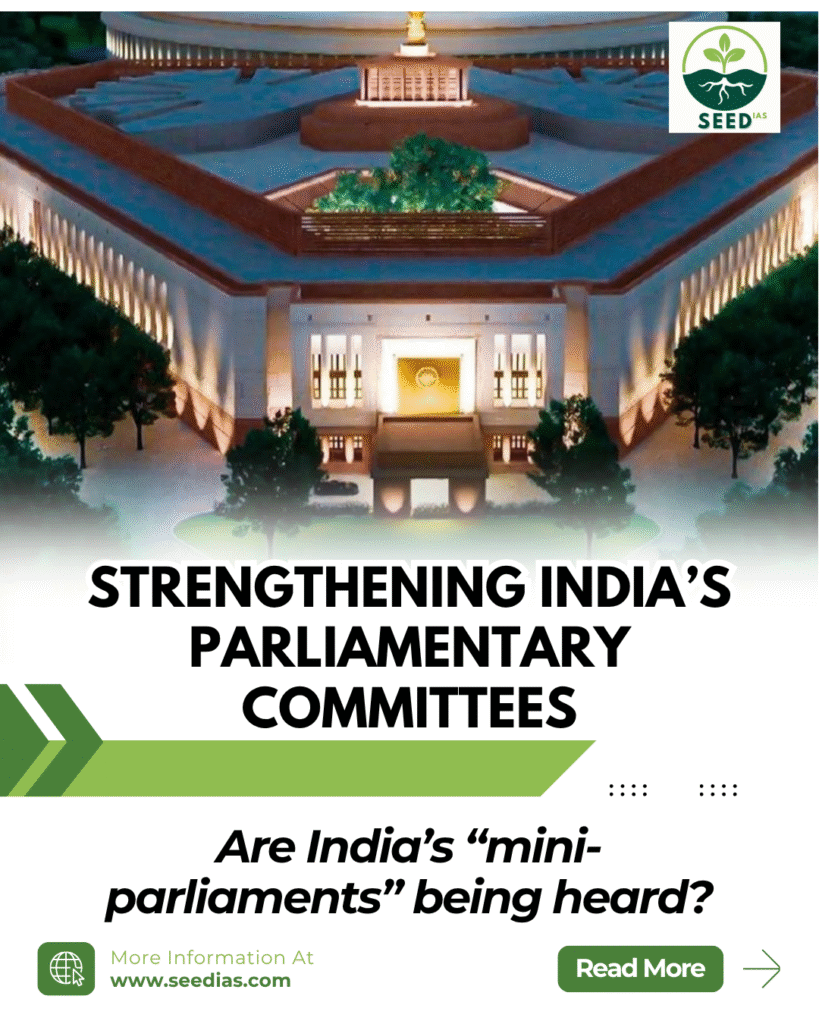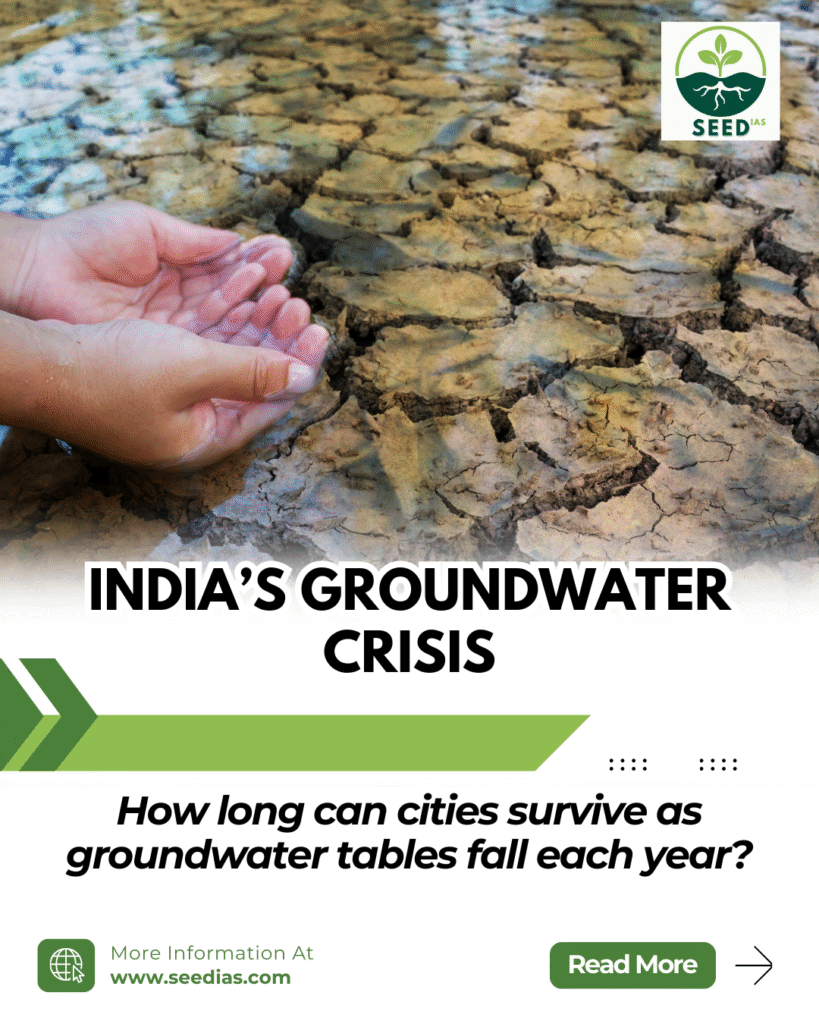Why in NEWS
Lok Sabha Speaker, at the National Conference of Estimates Committees, emphasized that Parliamentary Committees are not adversarial but complementary to the government, urging serious implementation of their recommendations.
Key Concepts & Definitions
| Term | Explanation |
|---|---|
| Parliamentary Committee | A body appointed by Parliament or its presiding officers to examine specific legislative, financial, or policy issues. |
| Standing Committee | Permanent committees reconstituted every year for regular and ongoing functions. |
| Ad hoc Committee | Temporary bodies created for specific tasks, dissolved after completion. |
| DRSC (Dept.-Related Standing Committee) | A standing committee that examines ministry-wise demands, bills, policies, etc. |
| Article 105 & 118 | Constitutional provisions giving Parliament the authority to make rules and exercise privileges, including forming committees. |
News in Detail
The Lok Sabha Speaker highlighted the crucial but under-recognized role of Parliamentary Committees. He urged ministries and officials to treat their recommendations with seriousness, suggesting that these bodies are not opposition tools but instruments of supportive scrutiny.
Types of Parliamentary Committees
| Type | Subtypes & Examples |
|---|---|
| Standing | Financial Committees, DRSCs, Committee on Petitions, Subordinate Legislation |
| Ad hoc | Select Committee on GST, JPC on Bills, Railway Convention Committee |
Why Parliamentary Committees Matter
| Role | Description |
|---|---|
| Executive Oversight | Detailed examination of policies and decisions ensures checks on government action. |
| Informed Legislation | Expert and stakeholder consultations enhance quality of bills. |
| Bipartisan Collaboration | Party-wise representation ensures consensus beyond political bias. |
| Capacity Building | Helps MPs develop subject knowledge and legislative skills. |
| Focus & Depth | Handles complex issues which full House cannot due to time constraints. |
Challenges in Current System
| Challenge | Details |
|---|---|
| Non-binding nature | Recommendations are advisory, with no enforcement power. |
| Weak research support | Lack of experts, tech tools, and analytical staff. |
| Low MP attendance | Around 50% attendance compared to 84% in full sessions. |
| Infrequent sittings | Parliament meets ~67 days/year; limits committee reviews. |
| Political interference | Party influence affects neutrality and independence. |
| Overloaded DRSCs | Handle multiple ministries; lack specialization and continuity. |
Steps to Revamp the Committee System
| Recommendation | Purpose |
|---|---|
| Better research & tech tools | Enable evidence-based and high-quality analysis. |
| Mandate Action Taken Reports (ATRs) | Enforce response from ministries with accountability. |
| Mandatory referral of bills | Ensure all non-finance bills are sent to committees for scrutiny. |
| Focus DRSC mandates | Fewer ministries per committee to develop expertise. |
| Boost MP participation | Use incentives, penalties, and recognition to increase engagement. |
| Public engagement & digital tools | Use e-consultations and accessible reports to increase transparency. |
In a Nutshell (Mnemonic: C.L.I.P.S.E.)
| Letter | Memory Hook |
|---|---|
| C – Checks on Executive | |
| L – Lawmaking Enhanced | |
| I – Inclusive, Informed Deliberation | |
| P – Participation by Experts & Public | |
| S – Specialization Needed | |
| E – Enforcement Weaknesses Exist |
Prelims Practice Questions
- Which Article of the Indian Constitution gives Parliament the power to regulate its business, including committees?
- A. Article 75
- B. Article 110
- C. Article 118
- D. Article 123
- Consider the following statements:
- Recommendations of Parliamentary Committees are legally binding.
- Ad hoc committees are dissolved after they complete their assigned task.
Which of the above is/are correct?
- A. 1 only
- B. 2 only
- C. Both 1 and 2
- D. Neither 1 nor 2
- Which of the following is NOT a Standing Committee of Parliament?
- A. Committee on Petitions
- B. Railway Convention Committee
- C. Committee on Government Assurances
- D. Committee on Estimates
Mains Questions
- (GS-2, 2020): “Parliamentary Committees form the backbone of legislative scrutiny in India.” Examine the role and limitations of these committees.
- (GS-2): Despite their importance, Parliamentary Committees often struggle with relevance and impact. What steps can be taken to rejuvenate their functioning?
Answers – Prelims
| Ques | Ans | Explanation |
|---|---|---|
| 1 | C | Article 118 allows Parliament to make rules for regulating its procedure and conduct. |
| 2 | B | Recommendations are advisory; only statement 2 is correct. |
| 3 | B | Railway Convention Committee is ad hoc, not a standing committee. |














